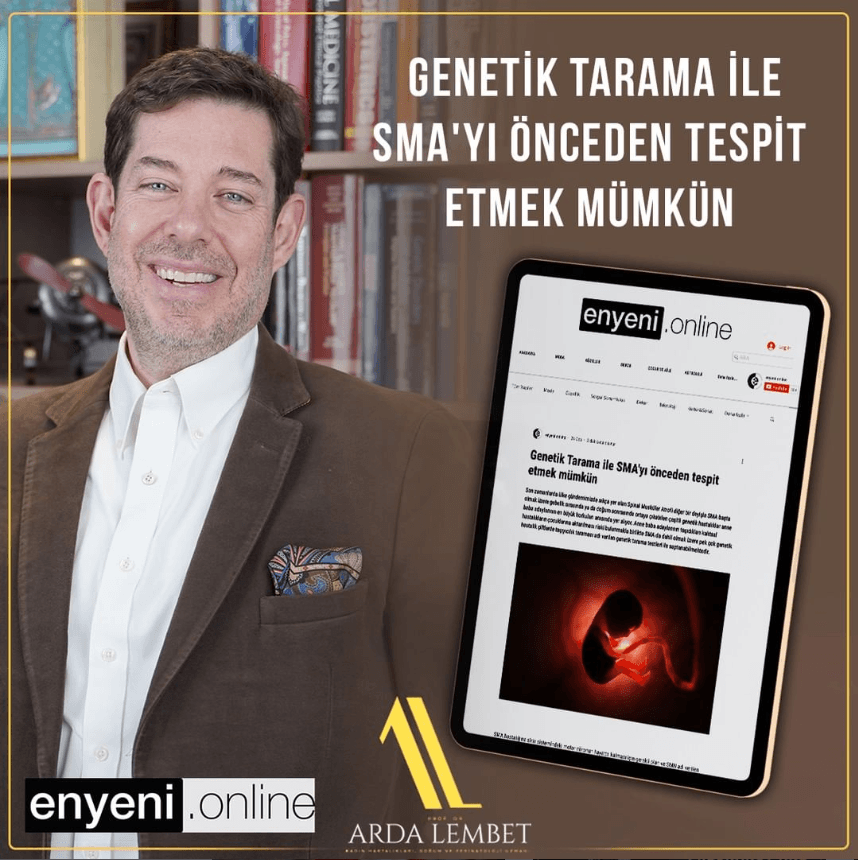Recently, genetic diseases such as Spinal Muscular Atrophy (SMA), which have frequently appeared on the national agenda, as well as various hereditary disorders that may emerge during pregnancy or after birth, are among the biggest concerns of expectant parents. Although hereditary diseases carried by parents may be passed on to their children, many genetic conditions—including SMA—can be detected through genetic screening tests known as carrier screening.
SMA is caused by the deficiency of a motor neuron protein called SMN, which is essential for the survival of motor neurons in the nervous system. In different types of SMA, the disruption of communication between the brain and the musculoskeletal system appears at varying times after birth. The disease affects approximately 1 in 8,000 people and is inherited in an autosomal recessive manner. This means that for the disease to occur in the baby, both the mother and the father must generally be carriers and must pass on the defective gene located on the 5th chromosome. SMA has four types, and screening of the SMN1 gene constitutes the main focus of testing.
Prof. Dr. Arda Lembet, Specialist in Obstetrics, Gynecology and Perinatology, states that couples who are SMA carriers can have healthy babies by performing Preimplantation Genetic Diagnosis (PGD) on the 5th-day embryo (blastocyst) integrated into IVF treatment, and selecting embryos determined not to carry the SMA mutation.
Healthy Babies Can Be Born Through IVF and PGD
Prof. Dr. Arda Lembet further explains:
“Hereditary diseases present in the mother or father can pose significant risks to the health of the child to be born. SMA, a motor neuron disease, affects the nervous system and the controlled muscle movement of the skeletal system. In couples identified as carriers of SMA—a genetically inherited disorder—embryos can be obtained through IVF treatment. The health status of these embryos can then be determined using the PGD method.”
Individuals who have a family history of hereditary diseases may also have healthy babies through natural pregnancy if their genetic tests come back positive. However, in such cases, the health status of the baby can be evaluated during pregnancy through chorionic villus sampling (CVS) or amniocentesis, by analyzing cell samples taken from the fetus and its surrounding structures. Yet it should be noted that, if a disease is detected, the decision to terminate or continue the pregnancy is extremely challenging for families.
For this reason, in such cases, the recommended approach is to perform IVF treatment combined with the PGD method.

